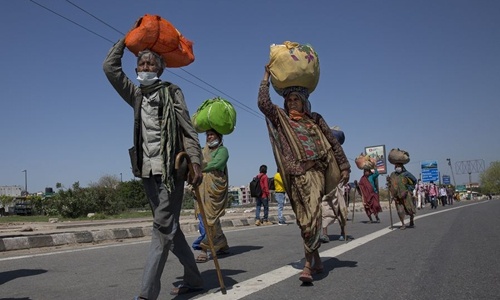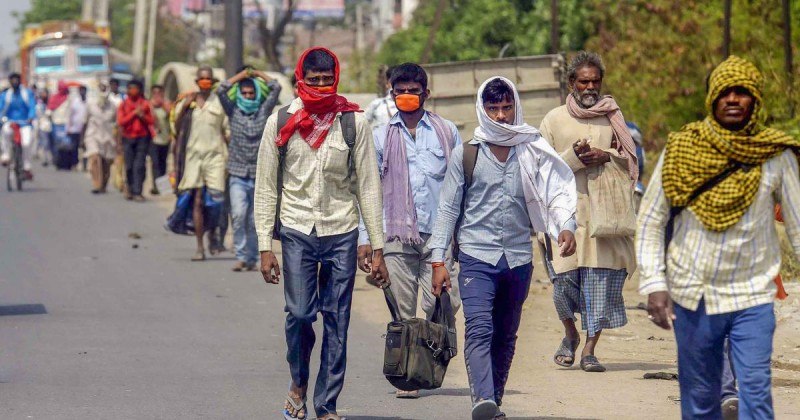Migrant workers in all corners of the country are presently finding it extremely hard to make two ends meet with a massive loss of livelihoods and lack of sufficient aid and help to sustain themselves in these particularly challenging times.
As we report and examine the plight and miseries of this section of the populace, it becomes extremely important for us to look at a recent survey that was conducted by the Safe In India Foundation(SII) and Agrasar.
The survey was conducted among 100 migrant workers who couldn’t go back to their native villages or decided to stay back in Gurugram. The survey showed that many of them haven’t received their wages since April during the nationwide lockdown in spite of the appeal that was made by the government to all employers against the curtailment and sacking of employees.
Another issue which seems to concern these workers is that the industries and factories in which they worked have not even called them back to resume their work. Amidst this uncertainty and in an environment where even the voices of labour unions have been curtailed, their decision of staying back and not returning to their native villages amid the lockdown has proven quite difficult as far as their sustenance is concerned.
It is important to note that the organisations that collectively did the survey have been closely working with the working class for over a decade now and have a database that covers workers from all sectors. Thus the survey had a representation of workers from a wide range of sectors including the garment, rubber units and auto sectors among others.
A major challenge before these workers is that none of the industrial units and factories in which they were employed earlier have approached them to resume work even while they are struggling to find people to work for them. The people who conducted this important survey said that this complete sense of loss and helpless for the workers comes due to a complete information asymmetry. On the one hand, there are workers who are struggling to find work to sustain themselves in these difficult weeks and on the other there are factory and industry owners, who aren’t being able to tap on this manpower resources. Lack of information on job requirements among migrant workers is also a major hinderance before them.
The important survey assessed many important indicators such as the situation of the wages, the condition of the migrant workers and the extent to which governmental support had reached out to them.
The findings of the survey show that 75% of the workers hadn’t been paid for the month of April as the lockdown had been extended. There was massive worsening over March, for which around 25% did not get access to their complete wages in spite of the fact that the government had appealed to industrial/factory units and other employers not to deduct the salaries/wages of employees.
The report said, “It is clear that the government directive to pay full salaries was ineffective. Now that this directive is withdrawn completely, the need for government support for these migrant workers is further intensified.”
There is thus an immediate need for the government to ensure that food and cash support is urgently given out to these workers and effective aid is extended to them.
This survey also shows that 77% of the workers had not left for their native places and had chosen to stay back in Gurugram.
An important challenge ahead of the Indian government is to make sure that these migrant workers get access to employment and sustenance support until the economy can be fully revived.













